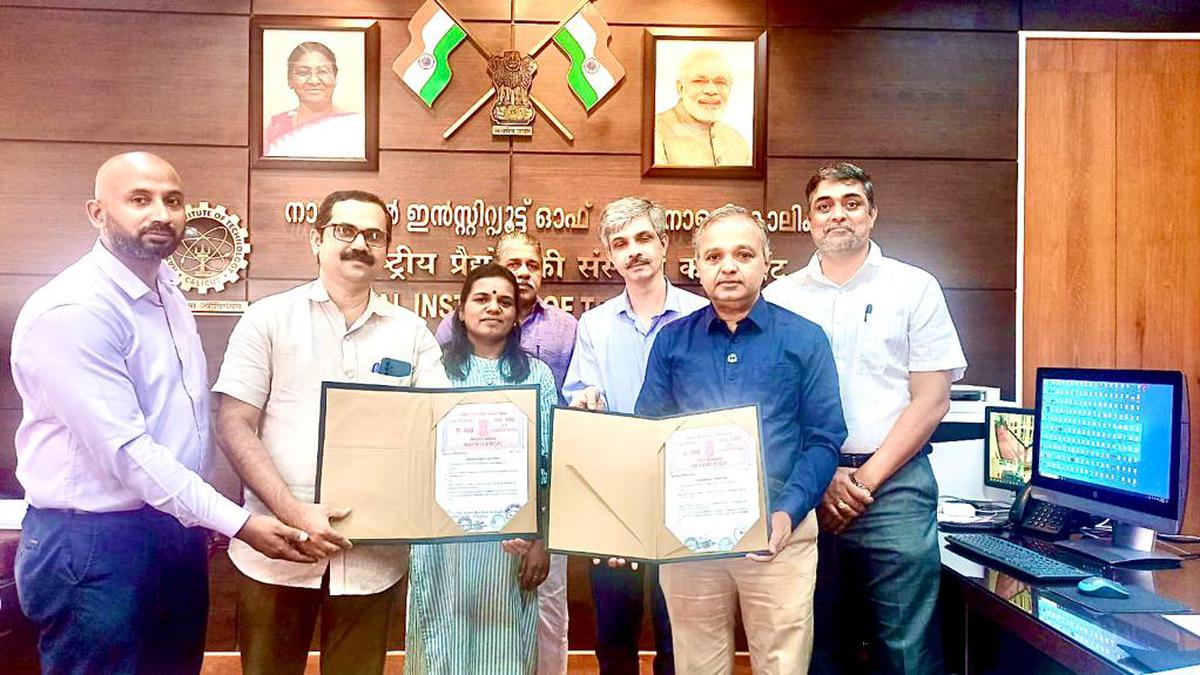
NIT-C to prepare masterplan for Kodenchery Family Health Centre
The Hindu
NIT-C and Koduvally block panchayat sign MoU to develop Family Health Centre in Kozhikode. Project aims to upgrade existing FHC into state-of-the-art health centre with inpatient facilities.
The Department of Architecture and Planning at the National Institute of Technology Calicut (NIT-C) will collaborate with the Koduvally block panchayat to prepare a master plan for upgrading the Family Health Centre (FHC) at Kodanchery grama panchayat in Kozhikode district.
As part of the key initiative, a Memorandum of Understanding (MoU) was signed between the NIT-C and Koduvally block panchayat here on Thursday.
The project aims to develop the existing FHC into a state-of-the-art health centre with future possibilities for inpatient facilities. The masterplan will accommodate all developmental prospects as demanded under the National Health Mission.
“It is a great pride for Kerala that even FHCs are functioning as full-fledged hospitals,” said Prof. Prasad Krishna, Director, NIT-C.
The facilities in the existing FHC are highly insufficient to cater to the health requirements of over 40,000 people living in Kodenchery grama panchayat, said Roy Kunnappally, member of the block division. The health infrastructure faces an acute shortage of quality spaces to accommodate essential treatment facilities and lab equipment, he added.
The facilities are currently housed in buildings constructed nearly 50 years ago, facing constraints of inadequate space, lighting, and ventilation. The FHC also caters to the community from 16 scheduled tribe settlements and around 12 scheduled caste settlements in the panchayat.
At present, the FHC is functioning as an outpatient facility where nearly 500-800 patients visit every day for various health-related issues. The FHC at Kodenchery is the only healthcare facility available for the people living in the 15-km stretch.

“Writing, in general, is a very solitary process,” says Yauvanika Chopra, Associate Director at The New India Foundation (NIF), which, earlier this year, announced the 12th edition of its NIF Book Fellowships for research and scholarship about Indian history after Independence. While authors, in general, are built for it, it can still get very lonely, says Chopra, pointing out that the fellowship’s community support is as valuable as the monetary benefits it offers. “There is a solid community of NIF fellows, trustees, language experts, jury members, all of whom are incredibly competent,” she says. “They really help make authors feel supported from manuscript to publication, so you never feel like you’re struggling through isolation.”

Several principals of government and private schools in Delhi on Tuesday said the Directorate of Education (DoE) circular from a day earlier, directing schools to conduct classes in ‘hybrid’ mode, had caused confusion regarding day-to-day operations as they did not know how many students would return to school from Wednesday and how would teachers instruct in two modes — online and in person — at once. The DoE circular on Monday had also stated that the option to “exercise online mode of education, wherever available, shall vest with the students and their guardians”. Several schoolteachers also expressed confusion regarding the DoE order. A government schoolteacher said he was unsure of how to cope with the resumption of physical classes, given that the order directing government offices to ensure that 50% of the employees work from home is still in place. On Monday, the Commission for Air Quality Management in the National Capital Region and Adjoining Areas (CAQM) had, on the orders of the Supreme Court, directed schools in Delhi-NCR to shift classes to the hybrid mode, following which the DoE had issued the circular. The court had urged the Centre’s pollution watchdog to consider restarting physical classes due to many students missing out on the mid-day meals and lacking the necessary means to attend classes online. The CAQM had, on November 20, asked schools in Delhi-NCR to shift to the online mode of teaching.









